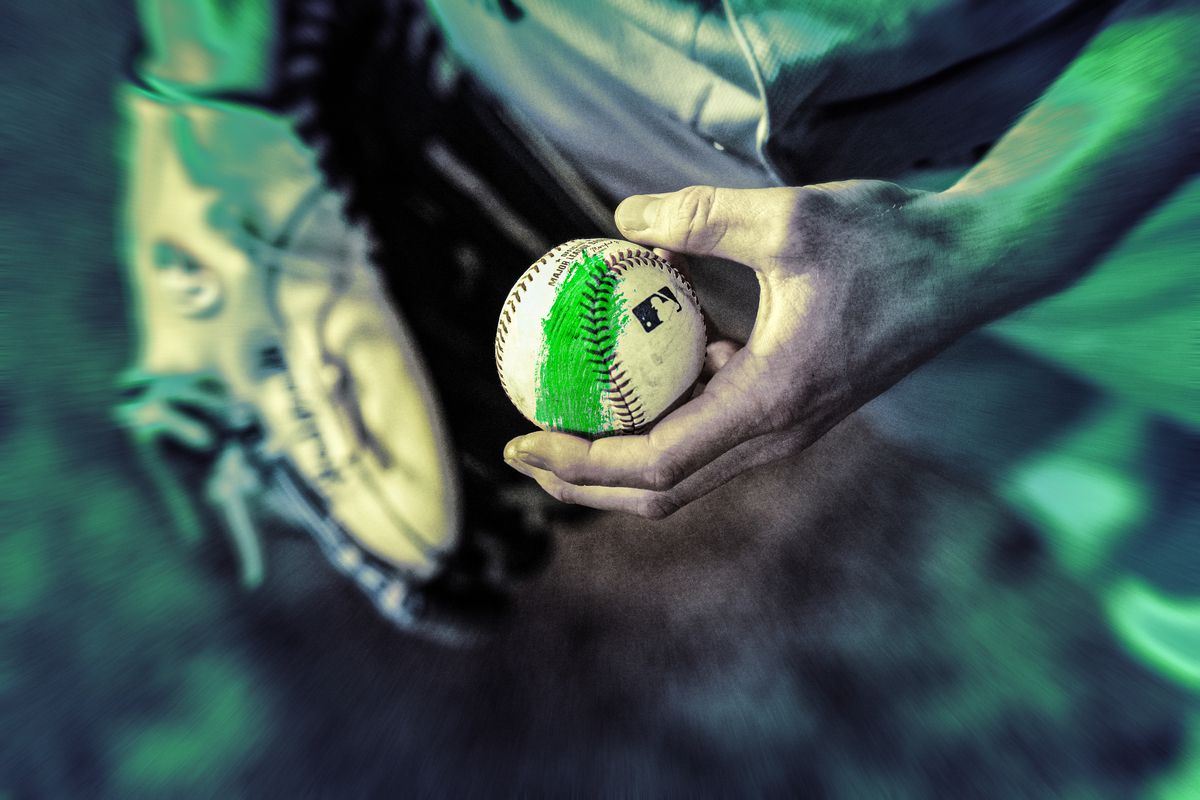Major League Baseball has become an Old West town with gunslingers galore, and not a feared Sheriff in sight.
To suggest substances — from those injected during the Steroid Era to the hand and equipment-applied “stickiness” that spawned the SpiderTack Revolution — are the singular force behind the grandest brand name baseball cards money can buy is an exercise in futility. If Johnny America were to combine sunscreen with a bag of store-bought rosin in his detached garage right now, he would not mystically transform into the second coming of Satchel Paige. In fact, there is no guarantee he would even make the starting rotation of his 35-and-Over Men’s League team.
But apply these same variables to not one, or a few, but a slew of former international signees with high baseball IQs, and university-bred engineering majors with high IQs in general – introduce them to a crack team of Ivy League executives and analysts the school of “Moneyball,” and you don’t have a police-lineup of hardened criminals; far from it. You don’t even have a team.
You have an entire league that’s spinning out of control the more its spin rate does. Where the administrative brass squashes each small success they gain in reaching a new audience of younger generation fans-to-be, still unsure who their heroes are supposed to because the league doesn’t quite trust them either.
Case in point: the optically-alarming “stop and frisk” abomination implemented mere weeks ago. Unprecedentedly, the MLB has rushed new anti-cheating protocols into place during the middle of a season – and to universal blowback. Broken down by rationalists across the board: banned “sticky substances” do not pave way for the dawning of the age of the baseball version of a Space Jam Monstar. As former New York Met and New York Yankee pitcher Al Leiter detailed on ESPN Radio’s “The Michael Kay Show,” substances of all kinds have stood the test of time within the league for pitchers to gain an enhanced grip (on the ball). In doing so, the ball can remain in a pitcher’s hand through his delivery for much longer – therefore creating more revolutions, spin, and above all, an infinitely increased likelihood that the ball will travel to its desired location: the strike zone, not between batter’s shoulder blades.
Hitters love that the ball is being put back in their court. Afterall, the art of hitting has (d)evolved into something of a crapshoot itself. An enhanced emphasis on analytics inspires a plan of prediction, versus an actual plan altogether; the consequence of engaging in a sport that has lost itself by making the wrong turn at the intersection of quantity and quality.
Who cares about spin rate if you tear your ulnar collateral ligament in the pursuit? Who cares about exit velocity if you hit the farthest solo home runs in 10-0 blowouts of anyone alive, but strike-out in every clutch situation possible? And who cares about a rule haphazardly implemented in the middle of the much-anticipated, first full-season in two years?
The players who already received their payday based on stats accrued in the season-of-reduced play certainly don’t. No matter how much they assure you they do.
The game committed to fixing its so-called “pace of play” crisis constantly contradicts itself by finding every which way to disrupt progress. They encourage players who can run around the bases in under 20 seconds to take double that time to deliberately celebrate home runs that barely scrape the outfield wall.
They also now require umpires who are another colossal, Armando Galarraga near-perfect game/Jim Joyce botched call away from literally being replaced by their electronic counterparts being groomed in the Atlantic League at this very moment, to be police officers on the field. Multiple Cy Young Award winner Max Scherzer can’t even sardonically claim to use his own hair sweat for a feel without having his whole legacy called into question.
The further the conversation strays from the exact practice deemed in need of dire supplantation, the more one forgets that throwing a baseball without knowing where it’s headed is even more ludicrous than an Old West town operating without a Sheriff; all the makings of a sensational movie plot, but a terrible reality describing not only each major league bullpen – now only equipped with nothing but fast-handed 97 mph-and-above hurling cowboys – but the league at large.
Everyone likes to say managers do not manage anymore. Some even say the general managers couldn’t generally manage a bank, let alone their favorite team. But everyone agrees that of late, the only thing Commissioner Rob Manfred has commissioned is the right for every self-respecting baseball fan to check out and tune into “Jeopardy” at 7:00 every night instead.
If you can’t punish the Houston Astros for advanced, measured-and-proven cheating, what’s the sense in punishing those whose only crime was wanting to keep the ball in the hands of their catcher, and not in the batter’s customized elbow guard that costs more than a few years’ worth of school cafeteria lunches? Tom Hanks may have said, “there’s no crying in baseball.” But he also said, “Houston, we have a problem.”
Sadly, Rob Manfred said something else to Houston. And it’s not worth repeating twice. Yet here we are, a year-and-a-half removed (from the reveal of the Astros cheating scandal). And the only Major League Baseball player who has been suspended for non-steroid cheating is Seattle Mariners pitcher Hector Santiago. Poll your local little league’s all-star team: do they even know who he is? What kind of example or cautionary tale does that set?
These days, “names” get the pass, and the rest face the wrath.







